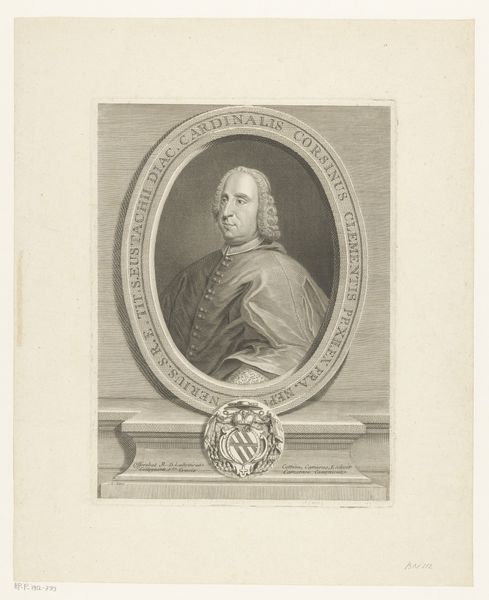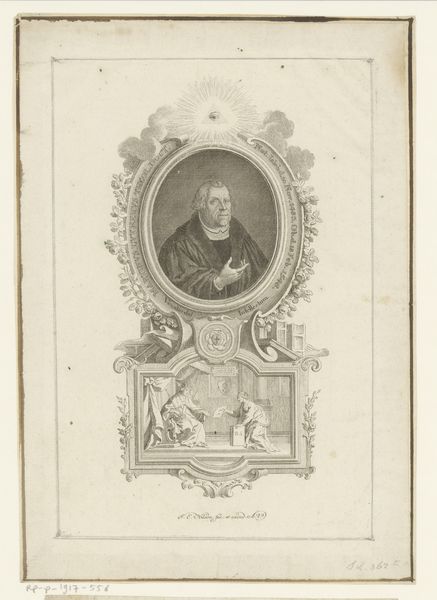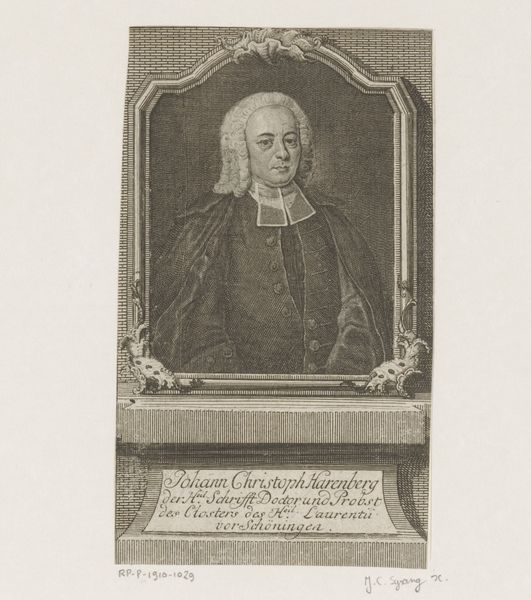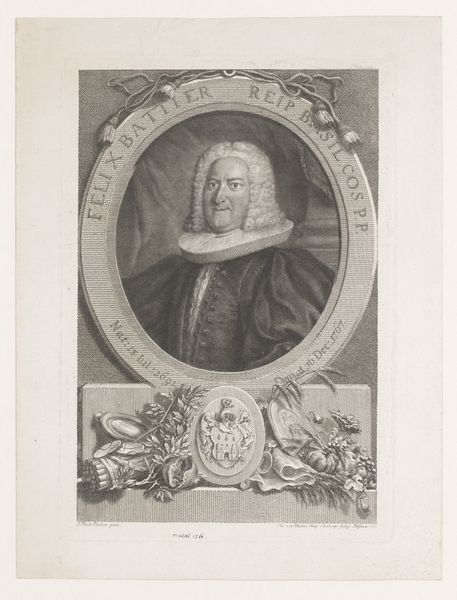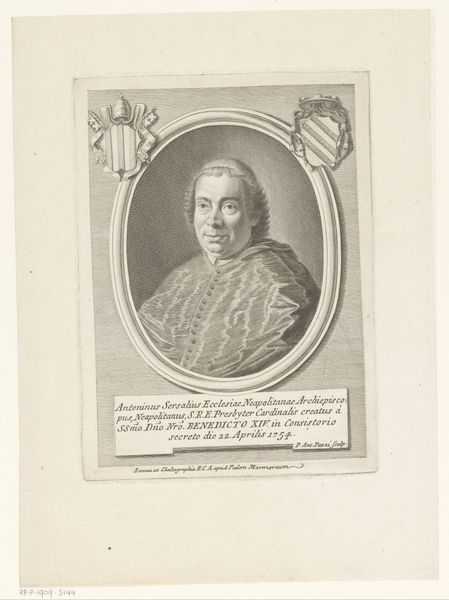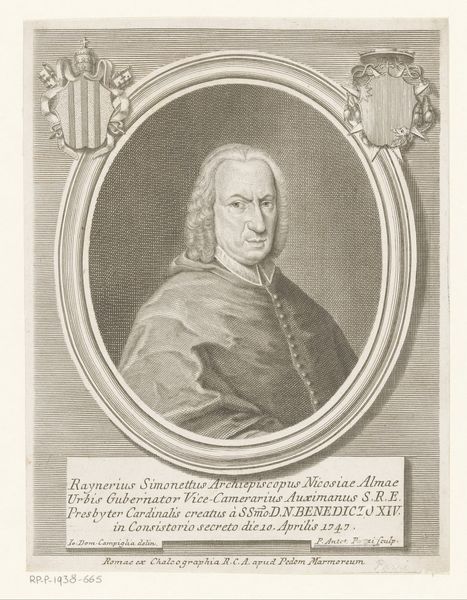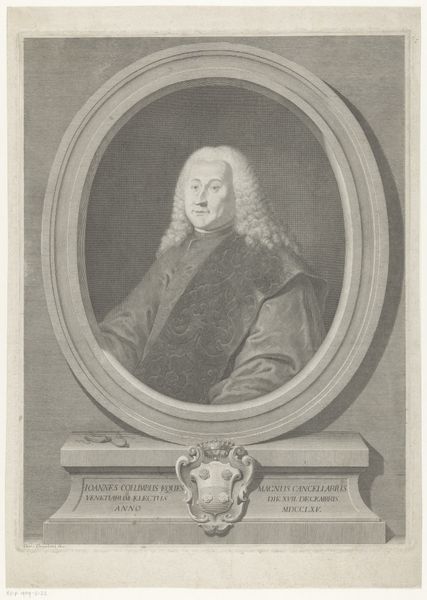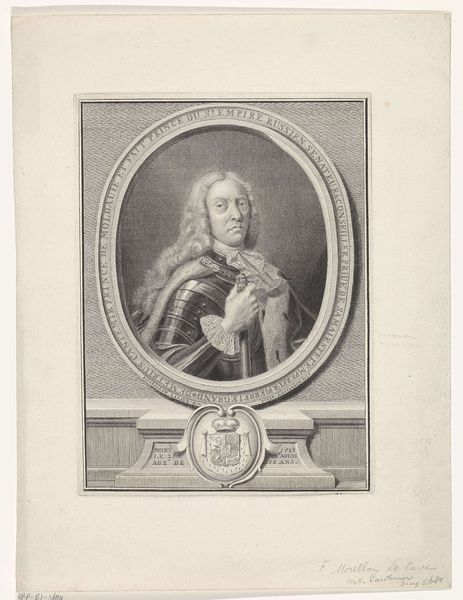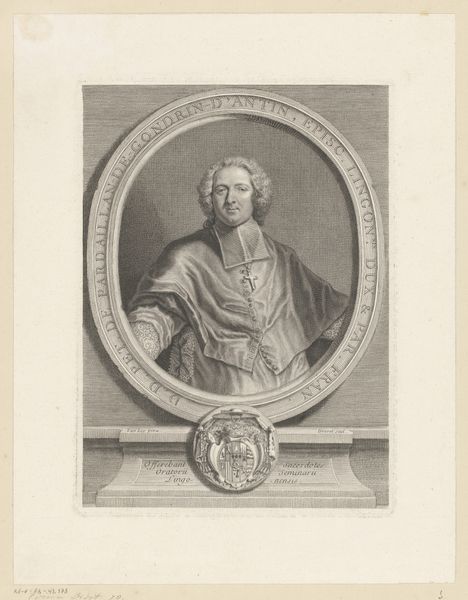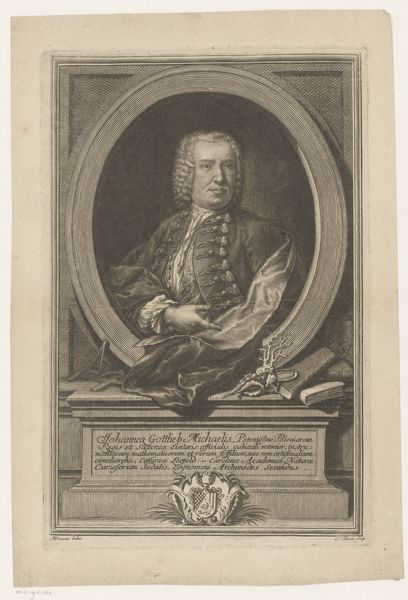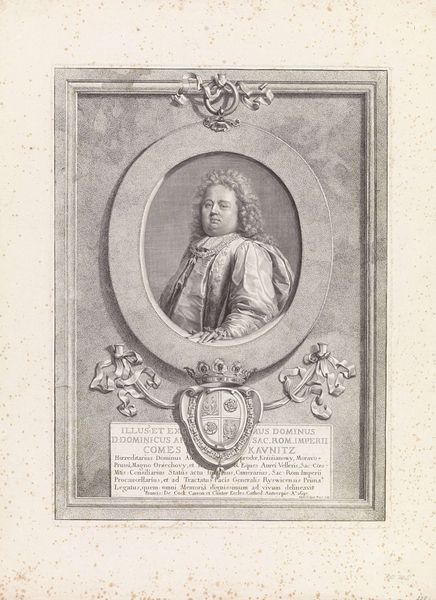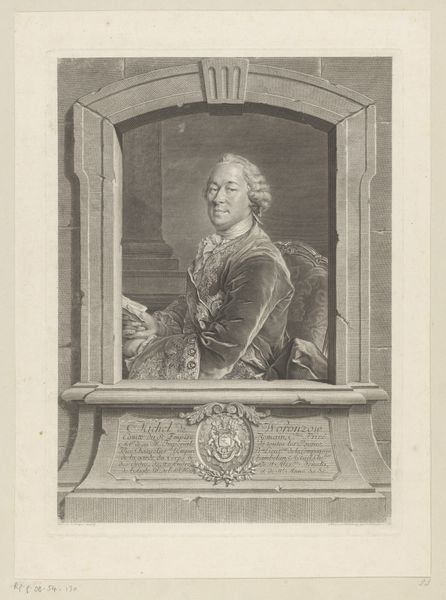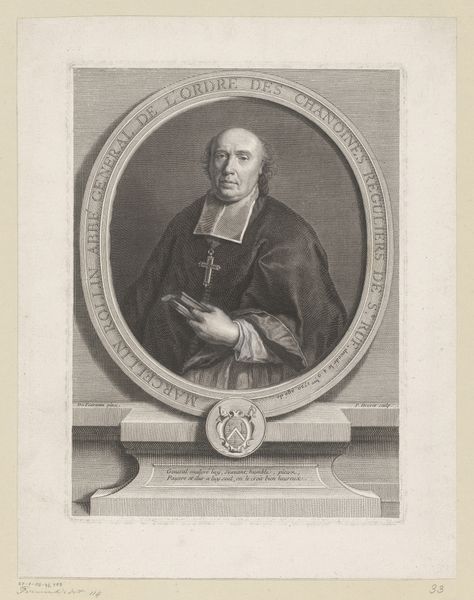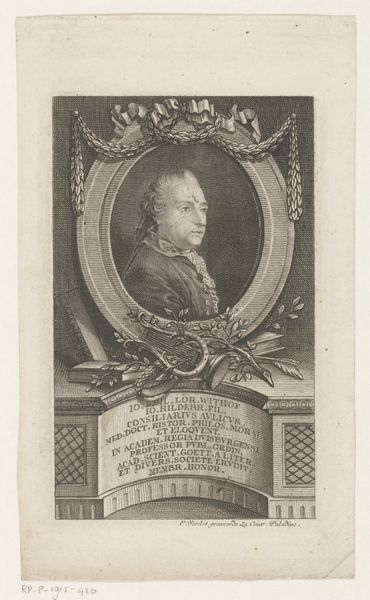
drawing, print, paper, engraving
#
portrait
#
drawing
#
baroque
# print
#
old engraving style
#
paper
#
engraving
Dimensions: height 295 mm, width 205 mm
Copyright: Rijks Museum: Open Domain
Curator: What strikes me immediately about this engraving is the somber mood it evokes, achieved almost entirely through the masterful control of line and shading. Editor: You’re right. It’s a commanding image. This is a print, an engraving specifically, titled "Portret van Louis-Jacques Chapt de Rastignac." It's estimated to have been made sometime between 1723 and 1750. The Rijksmuseum holds this particular example. The engraver was Jean Daullé. Curator: The subject dominates the pictorial space, doesn’t he? The use of an oval frame within the larger rectangular format immediately draws my eye to his face, meticulously rendered with incredible detail. I'm curious about the choices Daullé made in structuring the composition, especially with the elaborate base featuring an inscription and coat of arms. Editor: The figure portrayed, Louis-Jacques Chapt de Rastignac, was a prominent Archbishop, so his presentation is deliberate and steeped in the visual language of power and authority in 18th century France. Engravings like these were frequently commissioned to disseminate the image of important officials throughout the realm, functioning almost as a form of early public relations. Curator: The texture created by the engraving is truly remarkable; look at the depiction of the fabrics. The illusion of volume and texture created by nothing more than line, varying only in weight and density! Editor: Precisely. And considering that prints were, at the time, relatively affordable and easily reproduced, images like this would have circulated widely, reinforcing social hierarchies. Daullé's work here transcends mere representation, performing as a tool in solidifying Rastignac's position and prestige within the societal framework. It's a very compelling statement on the intersection of art and power. Curator: I see your point. However, I will always remember the striking and artistic presentation—the texture alone—achieved using relatively simple lines. Editor: Absolutely. Ultimately, its compelling composition, technical skill, and cultural context offer a rich historical record.
Comments
No comments
Be the first to comment and join the conversation on the ultimate creative platform.
